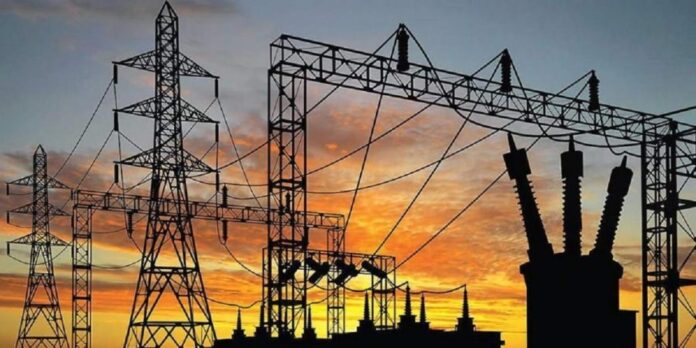Power Generation Stagnates At 4,500MW Despite $3.23bn Loans
Nigeria’s electricity generation has continued to hover around an average of 4,500 megawatts despite the country securing loans totalling over $3.23bn in about four years from international financial institutions.
Global institutions such as the World Bank, the African Development Bank, and the Japan International Cooperation Agency have supported the power sector with billions of dollars in loans, but many parts of Nigeria still suffer incessant blackouts.
These funds were approved to finance various projects to address the country’s electricity challenges and improve access to reliable power supply.
However, power generation in the country has persistently hovered around 4,500MW for a population of over 200 million people.
Father Who Accused LAUTECH of Baby Swap, Struggles with Child’s Sickle Cell Care
The daily power report obtained on Thursday, for instance, showed peak generation reached 4,743MW as of 6 am on Thursday.
However, the average power generation in the past three years has remained at 4,500MW despite efforts by the government.
Since 2020, the World Bank has approved multiple loans to Nigeria’s power sector, focusing on sustainable energy solutions, distribution system upgrades, and overall sector reform.
The Sustainable Power and Irrigation for Nigeria Project, with a principal amount of $500m, was signed in September 2024 to enhance energy reliability and agricultural productivity.
In December 2023, the World Bank signed agreements for the Nigeria Distributed Access through Renewable Energy Scale-up Project, totalling $750m across three International Development Association credits.
This project is expected to expand renewable energy access and distributed electricity solutions.
In June 2023, the World Bank approved $1.5bn for the Power Sector Recovery Performance-Based Operation, which includes $301m already effective, $449m currently disbursing, and $750m from 2020, of which $715m has been disbursed.
This programme was designed to improve financial sustainability and operational efficiency within the power sector.
Also, the Nigeria Distribution Sector Recovery Programme, with $500m approved in February 2021, aims to support the capital and technical needs of electricity distribution companies.
On July 31, 2024, the African Development Bank Group approved a loan of $500m to the Federal Republic of Nigeria to help transform the country’s electricity infrastructure and improve access to cleaner energy sources.
According to a statement from the AfDB, this funding will finance the first phase of the Economic Governance and Energy Transition Support Programme, aimed at transforming the country’s electricity infrastructure and improving access to cleaner energy sources.
The statement also noted that the loan will help close the financing gap in the Federal Budget for the 2024/25 fiscal year, specifically supporting the implementation of Nigeria’s new Electricity Act and the Nigeria Energy Transition Plan.
These initiatives are designed to decentralise the electricity supply industry and attract investments from subnational governments and the private sector.
In September 2022, the Federal Government said it would partner with the Japan International Cooperation Agency to implement a $200m electricity transmission expansion programme in Lagos and Ogun states.
The former Minister of Power, Abubakar Aliyu, had said the aim of the programme was to expand the transmission network in the identified states so as to effectively support industries in the South-West.
However, there have been some challenges around the implementation of a number of the projects linked to the loans.
The $500m Nigeria Distribution Sector Recovery Programme, aimed at addressing significant challenges in the country’s electricity distribution sector, was hit by several delays.
A World Bank document on the restructuring of the project, obtained on Monday, indicated that these delays, primarily due to a court case filed by the Association of Meter Manufacturers of Nigeria and a slow approval from the National Assembly, have threatened the timely implementation of the project.
The DISREP, approved by the World Bank in February 2021, is designed to improve the financial and technical performance of Nigeria’s electricity distribution companies.
The programme is a hybrid one, combining a Programme-for-Results component valued at $345m, with an Investment Project Financing component of $155m.
The funding aims to enhance Nigeria’s electricity sector by improving Discos’ performance, addressing the metering gap, rehabilitating distribution infrastructure, and strengthening governance.
However, the implementation of the project has been delayed due to a few factors, including a legal challenge that impacted the procurement of smart meters.
With the challenges in the sector, power generation in Nigeria has not improved, and the country continues to experience erratic electricity supply and frequent national grid collapses, with over 100 incidents recorded in the past decade.
Nigeria has been battling epileptic power supply, affecting the productivity of small businesses and manufacturers. This challenge is exacerbated by the frequent collapse of the national grid, with a total of 12 breakdowns recorded in 2024.
These challenges, compounded by infrastructure deficiencies and delays in implementing critical reforms, have raised questions about the effective utilisation of these funds.
To resolve recurring issues, the Minister of Power, Adelabu Adebayo, revealed that Nigeria requires at least $10bn over the next 10 years to achieve 24-hour power supply across the country.
However, several underlying factors have hindered the presidential goal to generate 6,000MW this year.
The government has pledged to address these inefficiencies and ensure that the loans yield the intended results.
The Ministry of Power plans to allocate a significant portion of its N1.2tn 2025 budget towards financing a range of multilateral and bilateral loan projects to enhance electricity generation and distribution nationwide.
Stakeholders within the power sector have emphasised the need for transparency and accountability in managing these resources to achieve tangible improvements in electricity generation.
However, as of now, the stagnation in power output persists, leaving many Nigerians to contend with unreliable power supply despite the substantial financial inflows in the sector.





